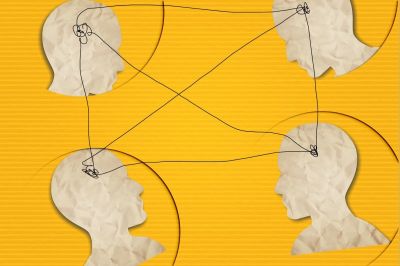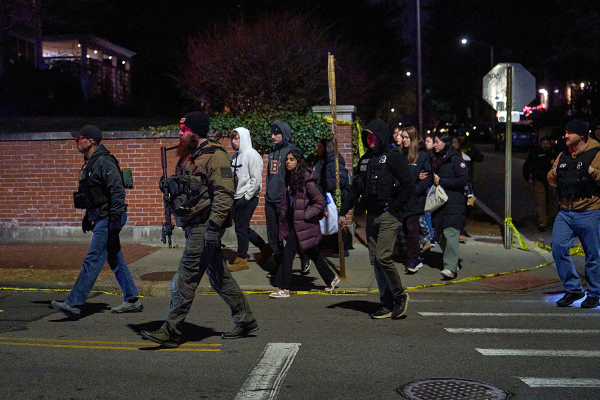The hijacking of empathy and equality

During the 1960s, many young Americans (myself included) were looking for more than the American dream, asking deeper questions about the meaning of life. The rapid changes in the culture, the challenges to the status quo of the day, the shocking assassinations, and the specter of the Vietnam War created a deep sense of uncertainty, also leading to a spiritual search. Why are we here after all? A deep void existed in our hearts, one that led many of us to a transformational encounter with the Lord during the Jesus Revolution.
Unfortunately, it was not only the Lord who filled that void. Satan and the world rushed in to fill it too, especially with sex, drugs, rock-n-roll, and Eastern religion. That was the path many of us took before we came to know the Lord, a path from which many others never returned.
In our day, as a young generation deals with its own set of uncertainties and frustrations, longing to see justice and equality prevail, Satan and the world have rushed in to hijack these sentiments, many of which are good and noble in themselves.
Nowhere is this clearer than in the hijacking of empathy, defined as “the ability to understand and share the feelings of another.”
It is partly because of empathy that a disproportionate percent of Gen Z’ers identify as LGBTQ+, even though only a small percentage of them are actively, let alone exclusively, involved in same-sex relationships and activity.
As a result, this quality of empathy, which can be very positive in and of itself, has been coopted in a destructive, negative way. And so, to give just one example, out of empathy, many teens will instinctively defend a trans-identified peer, not realizing that this peer is about to destroy his or her life via chemical castration and genital mutilation. Their empathy in the short-term actually contributes to their friend’s long-term pain.
And so, rather than lovingly help their friend not to mutilate and alter the healthy body God has given them, their empathy moves them to side with an act of self-destruction.
It’s the same with the pursuit of justice and equality, in the name of which a male who identifies as female can compete against real females, not to mention share a locker room with them. Yes, this uncomfortable, unequal, and potentially abusive situation is justified in the name of equality.
And so, in a recent court case where a weightlifting association was ordered to “cease and desist” from banning biological males from competing against biological females, the verdict was reached in the name of fairness. The association must not discriminate against a man who believes he is a woman, thereby discriminating against all the true women. What a travesty.
Almost 20 years ago, in April 2005, Dr. Al Mohler noted that, “When Christian Smith and his fellow researchers with the National Study of Youth and Religion at the University of North Carolina at Chapel Hill took a close look at the religious beliefs held by American teenagers, they found that the faith held and described by most adolescents came down to something the researchers identified as ‘Moralistic Therapeutic Deism.’” (Remember that these adolescents, today, are in their 30s or 40s.)
“As described by Smith and his team, Moralistic Therapeutic Deism consists of beliefs like these: 1. ‘A god exists who created and ordered the world and watches over human life on earth.’ 2. ‘God wants people to be good, nice, and fair to each other, as taught in the Bible and by most world religions.’ 3. ‘The central goal of life is to be happy and to feel good about oneself.’ 4. ‘God does not need to be particularly involved in one’s life except when God is needed to resolve a problem.’ 5. ‘Good people go to Heaven when they die.’”
Note again principle #2: “God wants people to be good, nice, and fair to each other, as taught in the Bible and by most world religions.”
In practice, this means, “If your religious beliefs or biblical standards offend me or cause me any discomfort, then they (and you) must be wrong, since they (and you) are not nice, and being nice is the essence of the Gospel.”
Add empathy to the mix, and you end up with this: “You and your religious beliefs are obviously wrong, since they make my friend feel bad.”
Add the pursuit of equality to the mix, and you end up with this: “You and your religious beliefs are obviously wrong, since they are unfair to my friend.”
This, in short, is the hijacking of empathy and equality.
A remarkable example of this can be found in a recent dialogue between the social media superstar (and professional wrestler) Logan Paul and his good friend and co-host, who is a professing Christian. (I watched the video clip but cannot locate it at the moment.)
Paul justified the open hostility he was showing towards his friend because his friend was a Christian, and Christians believed in “conversion therapy.” That was it.
Presumably, this alleged Christian practice made Paul’s gay friends feel bad, and therefore Christianity itself was bad. Case closed. (See again the chapter, “If Gay Is Good, the Church is Bad” in my new book, Why So Many Christians Have Left the Faith.)
Charlie Kirk pointed me to a 2022 article by Perry Glanzer titled, “Is Empathy a Christian Virtue? Comparing Empathy to Christian Compassion.”
While recognizing the potential value of empathy, Glanzer noted that, “surveys reveal that having greater empathy may lead to less sympathy for enforcing certain unpopular moral or legal principles on college campuses, such as freedom of speech. Empathy, in this case, becomes a weapon welded by those concerned about the feelings of the majority who are disturbed by speech from the minority.
“In this respect, empathy by itself is like a tool. It can be used properly or improperly. Whether it becomes the Christian virtue of compassion depends upon whether it is directed to God-ordained ends and results in action.”
This reminds me of a quote by Ayn Rand (hat tip to John Hawkins for the quote): “Pity for the guilty is treason to the innocent.” How easy it is to turn something good on its head.
Those who reach out to the younger generation (and others who share their values) should recognize how some good values have been hijacked. And rather than simply react to the wrong positions they espouse, we can point them in the direction of Christian compassion and biblically-based justice. Then, working together, we can take back what has been stolen and steer that passion in a positive, life-changing direction. It’s called being redemptive. That’s a virtue that is almost impossible to hijack, pervert, or twist.
Dr. Michael Brown(www.askdrbrown.org) is the host of the nationally syndicated Line of Fire radio program. His latest book is Revival Or We Die: A Great Awakening Is Our Only Hope. Connect with him on Facebook, Twitter, or YouTube.





















